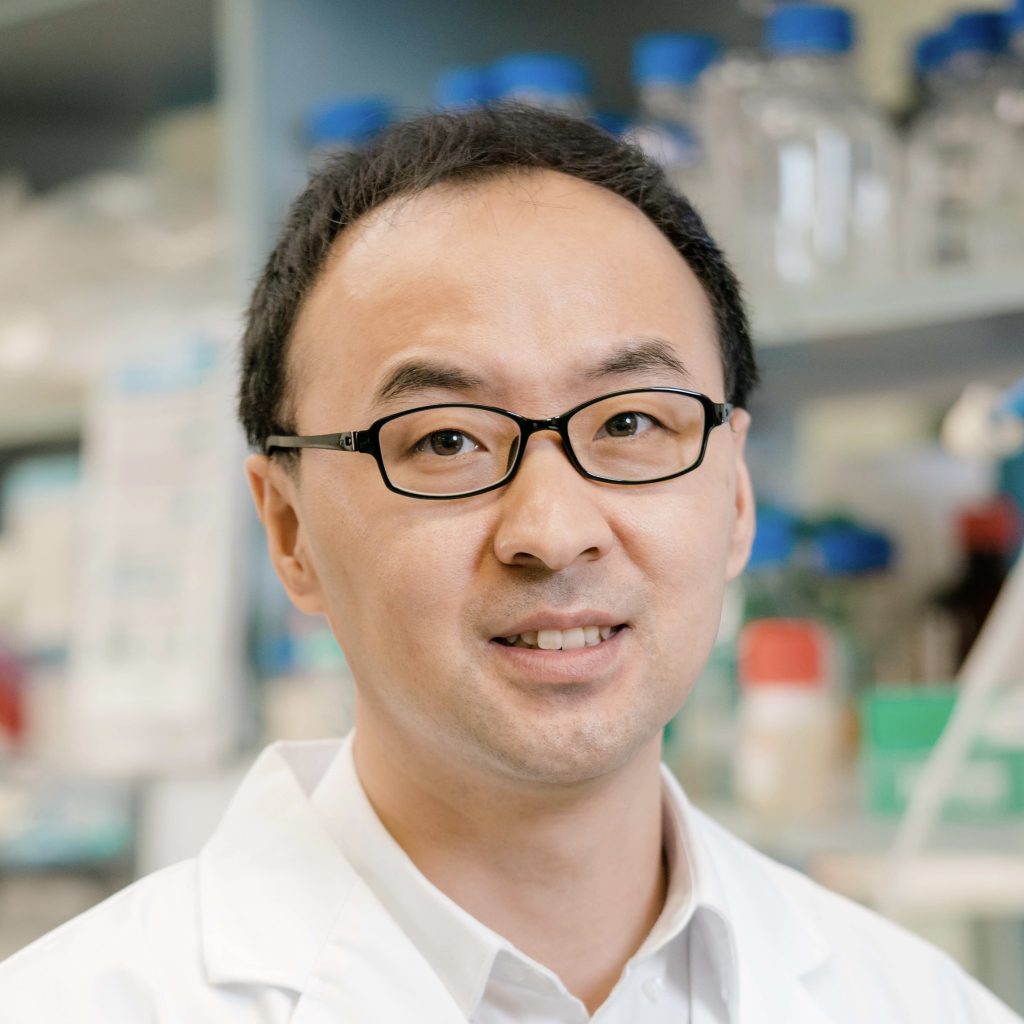May 2024 | Volume 25 No. 2
New HKU Antibiotic Drug Ready for Trial
Listen to this article:
Antibiotic resistance is a growing, global problem. In the US, about 70 per cent of bacteria in hospitals are resistant to at least one commonly used antibiotic, and 25 per cent resistant to more than one. In Europe, drug-resistant bacterial infections have led to 25,000 deaths annually. Moreover, ‘superbugs’ have emerged that are resistant to all classes of antibiotic drugs. In 2017, the World Health Organization published a priority list of 12 such pathogens that pose the greatest threat to human health and said new drugs were urgently needed to tackle them.
Rising to that challenge, Professor Li Xuechen and his team in the Department of Chemistry have been actively studying bacterial resistance and antibacterial drug development for more than a decade. Recently, they reached a milestone when a new antibiotic drug they developed, Kynomycin, was approved for testing in human subjects by the National Medical Products Administration (NMPA) of China.
The drug targets complex skin and soft tissue infections caused by bacteria, which are very common and often lead to emergency visits and hospitalisation.
“Treatment options have become increasingly limited because of the emergence of clinically resistant strains and the development of bacterial pathogens. We wanted to provide a new choice for clinical treatment,” Professor Li said.
Tackling resistance
Kynomycin is a new type of cyclic lipopeptide antibiotic. Cyclic lipopeptides are a promising class of natural products with antibacterial properties and several are now in clinical use, such as daptomycin, which is used against Gram-positive bacteria such as streptococcus and staphylococcus. However, their structural complexity has made it difficult to modify them to address resistance.
Professor Li’s group has overcome that obstacle in groundbreaking ways. In 2013, they pioneered a powerful tool for the chemical synthesis of peptides and cyclic peptides, called Serine/Threonine ligation (STL), then applied that to become the first in the world to achieve total synthesis of daptomycin. This has enabled them to look for next-generation daptomycin drugs using chemical synthesis.
Since then, they have synthesised more than 100 synthetic daptomycin analogues with the goal of developing new antibiotics to target resistant pathogens. The outcome from that work has been Kynomycin, which represents a new generation of antibiotics with extremely high antibacterial activity against both daptomycin-sensitive and -resistant strains. It also has low toxicity to mammals.
The discovery won the silver award at the 46th International Exhibition of Inventions of Geneva in 2018 and has undergone further development to the point that it is now ready for clinical applications. The drug has been licensed to a pharmaceutical company in the Mainland by HKU’s Technology Transfer Office and it was approved for clinical trials by the NMPA last autumn.
“Our drug aims to improve the safety and efficacy of cyclic lipopeptide antibiotics and provides a new choice for clinical treatment. It now needs to undergo phase one, two and three clinical trials and be evaluated and approved by the NMPA,” Professor Li said.
New candidates on the horizon
Meanwhile, he and his team are working on other antibiotic candidates through their interdisciplinary approach that draws on synthetic chemistry, medicinal chemistry and biology.
For instance, they have prepared more than 100 analogues of teixobactin, the first new antibiotic with drug potential to be isolated from bacteria in decades. Teixobactin was discovered by other researchers in 2015 and has a unique chemical structure and mechanism of action. Using the STL technology, Professor Li’s team became the first in the world to achieve a total synthesis of teixobactin, which was featured in Nature Communications in 2016. The resulting analogues have provided a foundation for systematically researching the structure-activity relationship in teixobactin and they are progressing towards developing a clinical application of their findings.
They also expanded the STL platform to achieve the first total synthesis of Malacidin A, a cyclic peptide antibiotic discovered in 2018 that is excellent against a broad spectrum of Gram-positive bacteria, including superbugs that are increasing in prevalence in Hong Kong and elsewhere, such as methicillin-resistant Staphylococcus aureus (MRSA) and vancomycin-resistant Enterococcus (VRE).
The team are now one of the world-leading research groups in the field of antibacterial cyclic peptides. Last year, Professor Li was awarded a Contribution Award in Carbohydrate Chemistry by the Chinese Chemical Society, an Innovation Award by the Peptide Alliance of China, and a Senior Research Fellowship by the Research Grants Council of Hong Kong.
“With the technology and experience that we have accumulated, we will continue to work towards establishing a platform for developing and translating new peptide-based drugs,” he said.
Treatment options have become increasingly limited because of the emergence of clinically resistant strains and the development of bacterial pathogens. We wanted to provide a new choice for clinical treatment.

Professor Li Xuechen

